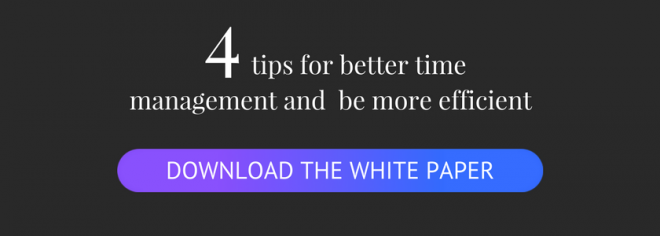Simply suggesting the notion of ” flexibility at work” is sometimes enough to spark a heated debate. And yet, as Les Échos points out, the practice can contribute to improving employees’ well-being and increase their efficiency at the same time. Let’s dive into the real connection between flexibility and productivity.
Where you work matters
A study conducted in 2017 by Morar Consulting on behalf of the American company Polycom revealed that there is a direct link between productivity and flexibility in the workplace. 98% of the 25,234 respondents in 12 different countries felt that the ability to work anywhere had a positive impact on their efficiency. Moreover, contrary to popular belief, remote work would not harm professional relations and could even contribute to improving them: 92% of the professionals who participated in the study believe that video conference collaborations promote teamwork and bring employees closer together.
Giving employees the opportunity to work where they feel they are most efficient could significantly contribute to the company’s overall productivity. Jim Kruger, Marketing Director of Polycom says, “It is companies that empower their employees to work flexibly using the right collaboration services that will succeed in recruiting and retaining the most talented people.”
Flexible working hours, an asset for both employee and employer
Hourly flexibility also appears to have an impact on productivity. A study carried out by Eurofound, the European Foundation for the Improvement of Living and Working Conditions, revealed the existence of “triangular relationships between working time flexibility, improved work-life balance, and increased motivation and psychosocial conditions leading to better productivity.” According to Anact, (the National Agency for the Improvement of Working Conditions) which echoed this research in 2012, “certain aspects of work-time flexibility, such as negotiating a time bank system, or finding a way to monitor the predictability of working time, or having the ability to request days off during the week, have a positive impact on employee work-life balance.”

On the other hand, the agency reveals that “working time arrangements such as different forms of time-saving accounts, variable working time and shift systems are positively linked to productivity growth. “As a result, workers and companies could benefit equally from innovative forms of work-time arrangements, provided that adequate negotiations and social dialogue are put in place.
A white paper published in 2017 by Horoquartz supports these results. Indeed, it reveals that 75% of employees believe that a more flexible organization of working hours goes hand in hand with better productivity. For 71%, it is even synonymous with better concentration at work. As for the managers questioned on the subject, they offered the same assessment on the beneficial effects of workplace flexibility. It seems the link between flexibility and productivity is clear: The more flexibility employees have, the more productive they’ll be.

Understanding the nuances of Flexibility and productivity
Time and workplace flexibility may well be the foundation for tomorrow’s businesses, but it is important to stress that to be effective, these new forms of organization need to redefine ways of working together. To go further, employers must recognize that each worker has unique needs. In essence, to truly be at the service of productivity, flexibility must be personalized. As Laetitia Vitaud points out in an interview with CoWork.io, “There is no ready-made solution that can be copied and pasted to increase everyone’s well-being and productivity. First, we must look at the optimal working conditions for each individual or each “class” of profession.
Do you think that work flexibility is positive or negative to our productivity? Tell us in comment 🙂

